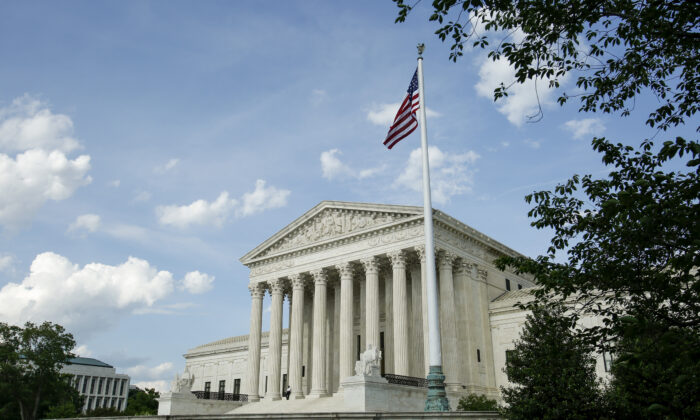
The U.S. Supreme Court on Friday has agreed to take up a dispute that questions whether an electoral college member is bound by the state to support the presidential candidate chosen by the popular vote.
The top court granted a petition to review a pair of cases—from Washington state and Colorado—that will decide the enforceability of state laws that threatens to penalize a presidential elector if they refused to vote for the candidate they pledged to support, commonly referred to as “faithless electors.”
The Supreme Court’s decision, expected later in the year, will likely have ramifications on this year’s presidential race if the electoral college members seek to casts votes for someone who did not win the popular vote in the state.
When an elector does not vote for a candidate who was chosen by the popular vote, some states provide that the deviant vote be canceled, and the elector replaced, according to FairVote.org.
Meanwhile, some states allow the vote to stay but would impose a penalty on the elector. Some states also allow both the canceling of the vote and a penalty.
Both Washington and Colorado have laws that direct how electors perform their duties and enforce consequences for casting a vote that deviates from the will of the people.
In Washington, an elector can be fined if they vote contrary to how the law directs. Meanwhile, in Colorado, if an elector does not back the candidate with a popular vote, they would have been deemed to have “refused to act,” resulting in a vacancy in that elector’s office that needed to be immediately re-filled.
The lower courts in both cases came to the opposite conclusion about the issues, with the 10th Circuit Court of Appeals in Colorado ruling for the electoral college members. At the same time, the Washington Supreme Court found in favor of the state.

